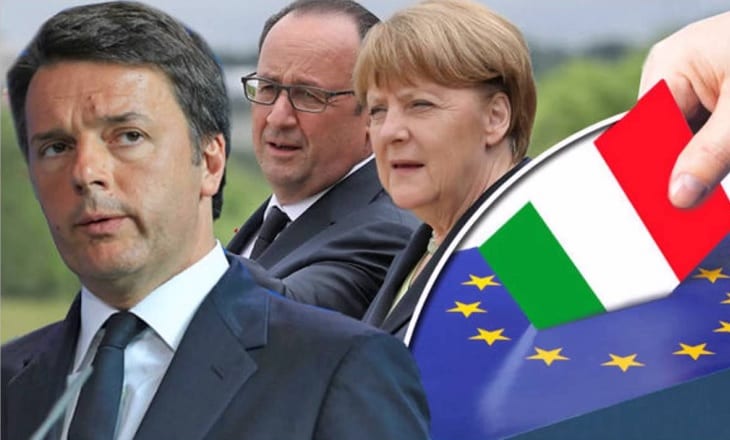This article was written by Ipek Ozkardeskaya, Senior Market Analyst at FCA regulated broker London Capital Group Holdings plc (LON:LCG).

Ipek Ozkardeskaya, LCG
European markets are nervous before Italy’s constitutional referendum due on Sunday 4thDecember, as the vote could retrace the path of Italy at the heart of the Eurozone, and also have consequences for the future of the euro and the European Union.
Although the multi-year debt crisis has taken its toll on the European Union’s economy and lead to the rise of anti-austerity groups across the single currency markets, the integrity of the Eurozone, and more broadly the European Union, had never been under a severe investigation. The anti-austerity supporters were seen as marginal groups and despite numerous threats, they have been given relatively little attention. After all, it was unthinkable to question the existence of the Eurozone and the European Union.
In this sense, the Brexit referendum may have been a turning point in the history of the European continent. The UK’s decision to walk apart from their EU peers revived hope among the anti-austerity supporters in other EU countries.
The UK has somewhat made the impossible, possible.
Although Italy’s constitutional referendum is not directly on whether or not Italy should leave the euro or the single market, it is expected to bring along more serious political debates in the near future, such as the country’s euro membership and perhaps its EU membership.
On Sunday, Italian citizens will decide whether they would like to proceed with the constitutional change, which aims to give additional seats to the party which has won the majority of votes in elections for Chamber of Deputies. In other words, the referendum comes down to strengthening the Secretary of Democratic Party and Prime Minister Matteo Renzi’s power at the heart of the government.
What does a ‘no’ vote mean for the future?
Despite earlier talks that Mr. Renzi would resign in case of a ‘no’ vote, we believe that the outcome of the referendum will not have an immediate impact on Italian politics. Mr. Renzi is unlikely to give up on his role either way.
Nevertheless, such defeat could be expected to bring along early elections in Italy and the rise of the populist Five Star Movement, which has promised a referendum on Italy’s membership in the euro area.
Although the probability for such an aligning of stars appear to be too low to call, the risk is concrete.
Could Italy leave the euro?
Only a year ago, the majority would find the idea of leaving the euro extreme. But today, such disintegration is credible, possible and even likely.
Immediate risks on euro
A ‘no’ vote could severely shake up the euro markets at Monday’s opening.
Of course, the ‘no’ vote does not directly stipulate the Italian depart from the euro, or the European Union. But the markets will undoubtedly price in an increased probability of euro disintegration and bring forward the possibility of euro-US dollar parity in the medium term.
‘A euro at two speeds’
The possibility of ‘a euro at two speeds’ will depend on how much traction the idea would gather at the heart of the Eurozone countries.
The rise of the right wing across many member countries suggests that a renewed euro-project may never see the daylight. Such chaotic political and financial situation could hardly lead to efficient negotiations among the members.
Don’t panic, just be aware
In this perspective, if it ever comes to the point of leaving the euro, there is a better likelihood for Italy to return to its national currency, the lira.
There is no need to say that the contagion effect could be terrific for the overall dynamics within the Eurozone.
Member countries have been suffering from an inefficient monetary policy for many years. The massive intervention from the European Central Bank brought along moderate economic growth and only a slight convergence between the core and the periphery.
Yet, the negative interest rates and heavily distorted asset prices increased financial risks across the Eurozone and Mario Draghi’s ‘bazooka’ could unexpectedly fire back on the real economy, especially in case of lower Eurozone conviction. As such, many member countries, including – Italy, Spain, Portugal and France – could face a rapid fall in their sovereign bond values and this situation would trigger a broader manifestation across the single currency area.
There is no doubt that the latter scenario would have catastrophic consequences for the European markets all together.
Economists at the world’s leading banks warn that severe capital outflows and wide-ranging turmoil across the European markets, would force policymakers to rapidly revise their plans.
According to the recent opinion polls, a majority of European citizens still believe in the single currency. Nevertheless, the most recent history has shown that things can change fast.
